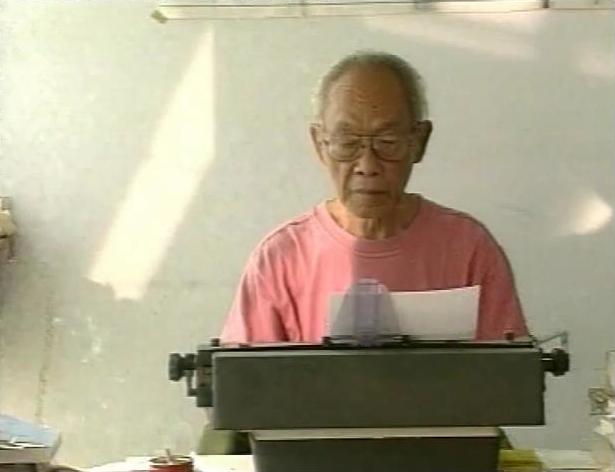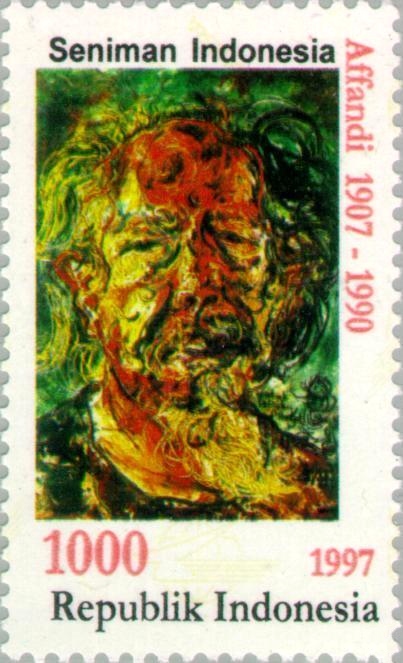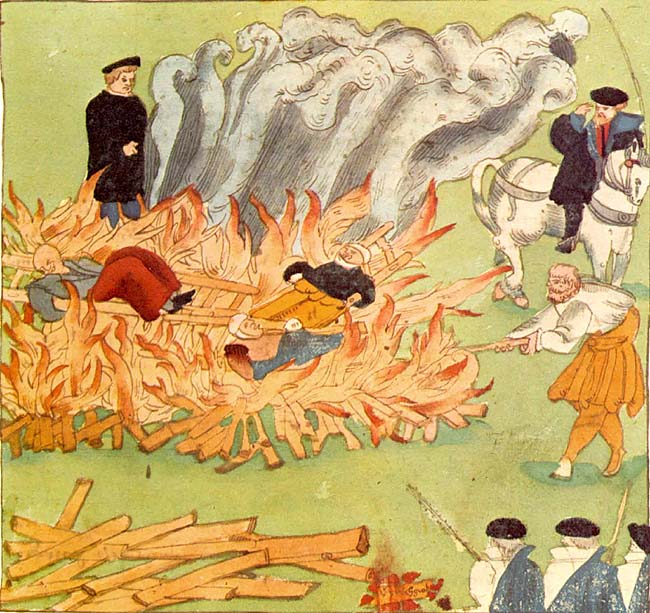|
Lekra
The Lembaga Kebudajaan Rakjat (Enhanced Indonesian Spelling System, EYD: Lembaga Kebudayaan Rakyat, often abbreviated Lekra; meaning Institute for the People's Culture) was a very prolific literary and social movement associated with the Indonesian Communist Party. Founded in 1950, Lekra pushed for artists, writers and teachers to follow the doctrine of socialist realism. Increasingly vocal against non-Lekra members, the group rallied against the ''Manifes Kebudayaan'' (Cultural Manifesto), eventually leading to President Sukarno banning it with some hesitations. After the 30 September Movement, Lekra was banned together with the communist party. History Lekra was founded in August 1950 as a response to the socio-nationalist Gelanggang Movement, with A.S. Dharma as its first secretary general. It published the ''Mukadimah'', meaning "introduction", as a manifest calling for young people, especially artists, writers and teacher, to assist in establishing a people's democratic republ ... [...More Info...] [...Related Items...] OR: [Wikipedia] [Google] [Baidu] |
Bakri Siregar
Bakri Siregar (14 December 1922 – 19 June 1994) was an Indonesian socialist literary critic and writer. Biography Siregar was born in Langsa, Aceh, Dutch East Indies, on 14 December 1922. He was active writing by the Japanese occupation in the early 1940s, as evidenced by one of his short stories, "Tanda Bahagia" ("Sign of Happiness"), being published in ''Asia Raja'' on 1 September 1944. After Indonesia's independence, Siregar went to the Soviet Union to further study socialism. He considered their system efficient and beneficial to the populace, which reaffirmed his ideology. He also praised Soviet writers who rejected cosmopolitanism and abstractionism. He published several dramas after returning to Indonesia, including the original ''Tugu Putih'' (''White Monument''; 1950), ''Dosa dan Hukuman'' (''Sin and Punishment'', based on ''Crime and Punishment'' by Fyodor Dostoyevsky), and ''Gadis Teratai'' (''Lotus Blossom Maiden'', based on a Korean folktale). By 1951 Sirega ... [...More Info...] [...Related Items...] OR: [Wikipedia] [Google] [Baidu] |
Manifes Kebudayaan
The Cultural Manifesto ( Republican spelling id, Manifes Kebudajaan, EYD: , abbreviated ) was a declaration by a group of Indonesian writers and intellectuals in late 1963. The Cultural Manifesto was initiated by HB Jassin, Trisno Sumardjo, Wiratmo Soekito, Zaini, Bokor Hutasuhut, Gunawan Mohamad, A. Bastari Asnin, Bur Rasuanto, Soe Hok Djin, DS Moeljanto, Ras Siregar, Hartojo Andangdjaja, Sjahwil, Djufri Tanissan, Binsar Sitompul, Gerson Poyk, Taufiq Ismail, M. Saribi, Poernawan Tjondronegoro, Ekana Siswojo, Nashar and Boen S. Oemarjati. The group that constituted the Cultural Manifesto was in ideological contrast to Lekra (Lembaga Kebudayaan Rakyat). Members of the Lekra movement nicknamed the Cultural Manifesto "Manikebu," a humorous abbreviation that in English means "Buffalo Sperm." History The manuscript of the Cultural Manifesto was completed by Wiratmo Soekito on August 17, 1963, at 04.00WIB. Then the manuscript can be accepted by Goenawan and Bokor Hutas ... [...More Info...] [...Related Items...] OR: [Wikipedia] [Google] [Baidu] |
Taufiq Ismail
Taufiq Ismail (born 25 June 1935) is an Indonesian poet, activist and the editor of the monthly literary magazine ''Horison''. Ismail figured prominently in Indonesian literature of the post-Sukarno period and is considered one of the pioneers of the "Generation of '66". He completed his education at the University of Indonesia. Before becoming active as a writer, he taught at the Institut Pertanian Bogor. In 1963, he signed the "Cultural Manifesto" as a document that opposed linking art to politics. This cost him his teaching position at the Institut. Ismail wrote many poems, of which the best-known are: ''Malu (Aku) Jadi Orang Indonesia, Tirani dan Benteng, Tirani, Benteng, Buku Tamu Musim Perjuangan, Sajak Ladang Jagung, Kenalkan, Saya Hewan, Puisi-puisi Langit, Prahara Budaya : Kilas Balik Ofensif Lekra, Ketika Kata Ketika Warna'' and ''Seulawah-Antologi Sastra Aceh''. Bored with his serious writing style, in 1970 he began writing poems mixed with humor. He has won many awards ... [...More Info...] [...Related Items...] OR: [Wikipedia] [Google] [Baidu] |
Sukarno
Sukarno). (; born Koesno Sosrodihardjo, ; 6 June 1901 – 21 June 1970) was an Indonesian statesman, orator, revolutionary, and nationalist who was the first president of Indonesia, serving from 1945 to 1967. Sukarno was the leader of the Indonesian struggle for independence from the Dutch colonialists. He was a prominent leader of Indonesia's nationalist movement during the colonial period and spent over a decade under Dutch detention until released by the invading Japanese forces in World War II. Sukarno and his fellow nationalists collaborated to garner support for the Japanese war effort from the population, in exchange for Japanese aid in spreading nationalist ideas. Upon Japanese surrender, Sukarno and Mohammad Hatta declared Indonesian independence on 17 August 1945, and Sukarno was appointed president. He led the Indonesian resistance to Dutch re-colonisation efforts via diplomatic and military means until the Dutch recognition of Indonesian independence ... [...More Info...] [...Related Items...] OR: [Wikipedia] [Google] [Baidu] |
Pramoedya Ananta Toer
Pramoedya Ananta Toer ( EYD: Pramudya Ananta Tur) (6 February 1925 – 30 April 2006) was an Indonesian author of novels, short stories, essays, polemics and histories of his homeland and its people. His works span the colonial period under Dutch rule, Indonesia's struggle for independence, its occupation by Japan during the Second World War, as well as the post-colonial authoritarian regimes of Sukarno and Suharto, and are infused with personal and national history. Pramoedya's writings sometimes fell out of favour with the colonial and later the authoritarian native governments in power. He faced censorship in Indonesia during the pre- ''Reformasi'' era even though he was well-known outside Indonesia. Dutch authorities imprisoned him from 1947 to 1949 during the War of Independence. During the transition to the Suharto regime, he was caught up in the shifting tides of political change and power struggles. Suharto had him imprisoned from 1969 to 1979 on the Maluku island of Bu ... [...More Info...] [...Related Items...] OR: [Wikipedia] [Google] [Baidu] |
New Order (Indonesia)
The New Order ( id, Orde Baru, abbreviated ''Orba'') is the term coined by the second Indonesian President Suharto to characterise his administration as he came to power in Transition to the New Order, 1966 until his Fall of Suharto, resignation in 1998. Suharto used this term to contrast his presidency with that of his predecessor Sukarno (retroactively dubbed the "Old Order," or ''Orde Lama''). Immediately following the 30 September Movement, attempted coup in 1965, the political situation was uncertain, Suharto's New Order found much popular support from groups wanting a separation from Indonesia's problems since its independence. The 'generation of 66' (''Angkatan 66'') epitomised talk of a new group of young leaders and new intellectual thought. Following Indonesia's communal and political conflicts, and its economic collapse and social breakdown of the late 1950s through to the mid-1960s, the "New Order" was committed to achieving and maintaining political order, econom ... [...More Info...] [...Related Items...] OR: [Wikipedia] [Google] [Baidu] |
Literary Realism
Literary realism is a literary genre, part of the broader realism in arts, that attempts to represent subject-matter truthfully, avoiding speculative fiction and supernatural elements. It originated with the realist art movement that began with mid- nineteenth-century French literature (Stendhal) and Russian literature (Alexander Pushkin). Literary realism attempts to represent familiar things as they are. Realist authors chose to depict everyday and banal activities and experiences. Background Broadly defined as "the representation of reality", realism in the arts is the attempt to represent subject matter truthfully, without artificiality and avoiding artistic conventions, as well as implausible, exotic and supernatural elements. Realism has been prevalent in the arts at many periods, and is in large part a matter of technique and training, and the avoidance of stylization. In the visual arts, illusionistic realism is the accurate depiction of lifeforms, perspective, and the ... [...More Info...] [...Related Items...] OR: [Wikipedia] [Google] [Baidu] |
Propaganda
Propaganda is communication that is primarily used to influence or persuade an audience to further an agenda, which may not be objective and may be selectively presenting facts to encourage a particular synthesis or perception, or using loaded language to produce an emotional rather than a rational response to the information that is being presented. Propaganda can be found in news and journalism, government, advertising, entertainment, education, and activism and is often associated with material which is prepared by governments as part of war efforts, political campaigns, health campaigns, revolutionaries, big businesses, ultra-religious organizations, the media, and certain individuals such as soapboxers. In the 20th century, the English term ''propaganda'' was often associated with a manipulative approach, but historically, propaganda has been a neutral descriptive term of any material that promotes certain opinions or ideologies. Equivalent non-English terms have also la ... [...More Info...] [...Related Items...] OR: [Wikipedia] [Google] [Baidu] |
Affandi
Affandi (18 May 1907 – 23 May 1990) was an Indonesian artist. Born in Cirebon, West Java, as the son of R. Koesoema, who was a surveyor at a local sugar factory, Affandi finished his upper secondary school in Jakarta. He gave up his studies to pursue his desire to become an artist. Beginning in 1934, Affandi began teaching himself how to paint. He married Maryati, a fellow artist. One of his children, Kartika also became an artist. Early life Affandi was born in 1907, in Cirebon. His father was R. Koesoemah. When he was a child, his father wanted him to be a doctor; however, Affandi was interested in drawing. Artistic career In the 1950s, Affandi began to create expressionist paintings. The piece ''Carrying the First Grandchild'' (1953) marked his newfound style known as "squeezing the tube". Affandi painted by directly squeezing the paint out of its tube. He came across this technique by accident, when he intended to draw a line one day. As he lost his patience when he was l ... [...More Info...] [...Related Items...] OR: [Wikipedia] [Google] [Baidu] |
Governmental Organization
A government or state agency, sometimes an appointed commission, is a permanent or semi-permanent organization in the machinery of government that is responsible for the oversight and administration of specific functions, such as an administration. There is a notable variety of agency types. Although usage differs, a government agency is normally distinct both from a department or ministry, and other types of public body established by government. The functions of an agency are normally executive in character since different types of organizations (''such as commissions'') are most often constituted in an advisory role—this distinction is often blurred in practice however, it is not allowed. A government agency may be established by either a national government or a state government within a federal system. Agencies can be established by legislation or by executive powers. The autonomy, independence, and accountability of government agencies also vary widely. History Early exa ... [...More Info...] [...Related Items...] OR: [Wikipedia] [Google] [Baidu] |
Witch Hunting
A witch-hunt, or a witch purge, is a search for people who have been labeled witches or a search for evidence of witchcraft. The classical period of witch-hunts in Early Modern Europe and Colonial America took place in the Early Modern period or about 1450 to 1750, spanning the upheavals of the Reformation and the Thirty Years' War, resulting in an estimated 35,000 to 50,000 executions. The last executions of people convicted as witches in Europe took place in the 18th century. In other regions, like Africa and Asia, contemporary witch-hunts have been reported from sub-Saharan Africa and Papua New Guinea, and official legislation against witchcraft is still found in Saudi Arabia and Cameroon today. In current language, "witch-hunt" metaphorically means an investigation that is usually conducted with much publicity, supposedly to uncover subversive activity, disloyalty, and so on, but with the real purpose of intimidating political opponents. It can also involve elemen ... [...More Info...] [...Related Items...] OR: [Wikipedia] [Google] [Baidu] |
Indonesian Killings Of 1965–1966
Indonesian is anything of, from, or related to Indonesia, an archipelagic country in Southeast Asia. It may refer to: * Indonesians, citizens of Indonesia ** Native Indonesians, diverse groups of local inhabitants of the archipelago ** Indonesian women, overview of women's history and contemporary situations * Indonesian language (Indonesian: ''Bahasa Indonesia''), the official language of Indonesia ** Indonesian languages, overview of some of the 700 languages spoken in Indonesia ** Indonesian names, customs reflecting the multicultural and polyglot nature of Indonesia * Indonesian culture, a complex of indigenous customs and foreign influences ** Indonesian art, various artistic expressions and artworks in the archipelago ** Indonesian cinema, a struggling and developing industry ** Indonesian literature, literature from Indonesia and Southeast Asia with shared language roots ** Indonesian music, hundreds of forms of traditional and contemporary music ** Indonesian philosophy, ... [...More Info...] [...Related Items...] OR: [Wikipedia] [Google] [Baidu] |





